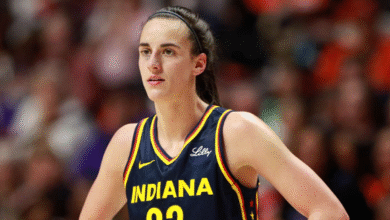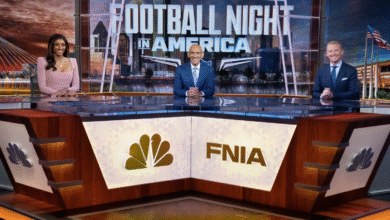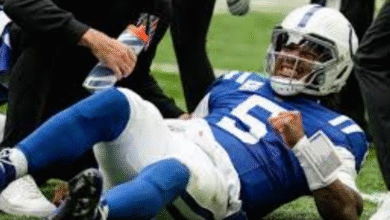Brittney Griner and the National Anthem: A Deep Dive into Protest, Patriotism, and Personal Evolution
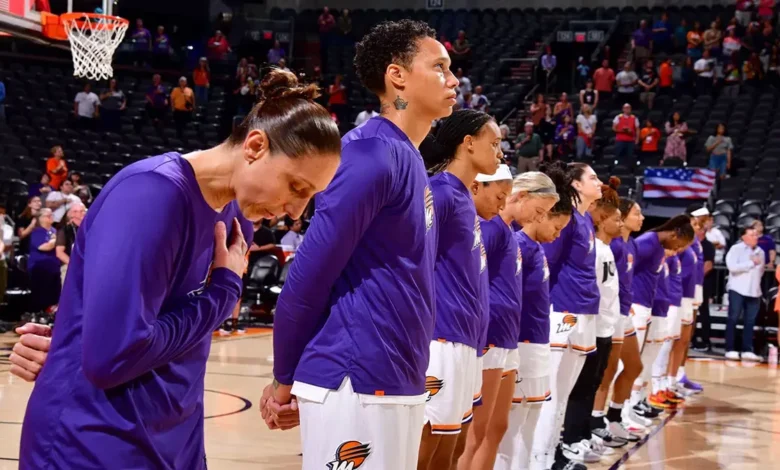
Explore Brittney Griner and the National Anthem, her protest against racial injustice, and the evolution of her stance. An expert yet casual analysis of activism and sports.
Brittney Griner’s National Anthem Stance: A Powerful Moment in Sports
Brittney Griner’s name is often associated with towering performances on the basketball court, but just as notable is her stance off the court. One of the most talked-about moments in her career came when she chose to protest the national anthem. This wasn’t just an impulsive act or a publicity stunt. It was a deliberate, thought-out decision grounded in deep personal and societal concerns. Her decision to stay in the locker room during the national anthem sparked headlines, debates, and introspections across the sports world and beyond.
Griner’s protest wasn’t in isolation. It echoed the footsteps of athletes like Colin Kaepernick, who used their platforms to spotlight racial injustice and inequality in the United States. However, Griner added a new dimension to the discourse: she was a Black woman, an LGBTQ+ icon, and a basketball star playing in the WNBA, a league that itself has become synonymous with social justice advocacy. Her voice was not only powerful but also layered with intersectional significance.
Understanding the Context Behind the Protest
To grasp the weight of Brittney Griner’s national anthem protest, we have to look at the broader social and political climate. The United States has long grappled with systemic racism, police brutality, and inequality. For many athletes of color, the anthem represents more than patriotic fervor; it symbolizes a history that hasn’t always honored or protected them.
When Griner announced in 2020 that she would not be on the court during the national anthem, she was responding to the murder of George Floyd and the subsequent protests that swept the country. Her decision was about aligning her visibility with a cause she deeply believed in. In her own words, she didn’t think the anthem represented the freedoms and rights of all Americans equally—particularly Black Americans. That sentiment resonated with many and sparked a nationwide conversation.
The Role of the WNBA in Social Activism
The WNBA has long stood apart as a league deeply committed to activism and social justice. Brittney Griner’s national anthem stance didn’t appear out of thin air—it was cultivated in an environment where players are encouraged to use their voices. From wearing Black Lives Matter shirts to initiating walkouts, WNBA players have been trailblazers in athlete activism.
Griner’s decision aligned with the league’s ethos. Her protest became a part of a larger movement within the WNBA, where players refused to remain silent in the face of injustice. Brittney Griner and the National Anthem This kind of solidarity among teammates and across teams further emphasized the importance of athlete-led activism. And while not every player chose to protest the national anthem, the league’s support for those who did spoke volumes.
Brittney Griner’s Personal Journey and Beliefs

It’s essential to recognize that Brittney Griner’s national anthem protest wasn’t just about the nation’s flaws—it was also about her personal journey. As a Black gay woman in America, her lived experiences added depth to her decision. Brittney Griner and the National Anthem She faced discrimination, criticism, and societal pressure at multiple intersections of identity.
For Griner, standing for the anthem felt like a contradiction to her truth. In interviews, she expressed a desire to see real change before she could wholeheartedly embrace a song that claims liberty and justice for all. That inner conflict was a critical part of her public protest. Brittney Griner and the National Anthem She wasn’t just speaking for herself; she was speaking for countless individuals who feel similarly marginalized.
Public Reactions to Griner’s Protest
Unsurprisingly, the public reaction to Brittney Griner’s national anthem stance was mixed. Some hailed her as brave, progressive, and principled. Brittney Griner and the National Anthem They saw her as someone unafraid to speak truth to power, someone who leveraged her platform for good. Others, however, criticized her decision, calling it unpatriotic or disrespectful.
This polarization reflects a broader tension in American society about what patriotism looks like. Brittney Griner and the National Anthem Is it about blind allegiance, or is it about striving to make the country better for everyone? For many supporters, Griner’s protest was the ultimate act of patriotism—challenging the status quo to build a more inclusive and just nation.
Evolution of Griner’s National Anthem Views After Her Detainment
A significant turn in Brittney Griner’s national anthem story came after her detainment in Russia. Brittney Griner and the National Anthem Her return to the U.S. and the overwhelming support she received gave her a new perspective. In a statement following her release, Griner said she would stand for the anthem moving forward—not because she suddenly agreed with all aspects of America, but because of the personal gratitude she felt.
This shift didn’t invalidate her earlier protest. Instead, it illustrated the complexity of human experience. People grow, situations change, and perspectives evolve. Griner’s journey shows that protest and patriotism are not mutually exclusive. Brittney Griner and the National Anthem One can critique a country and still appreciate it—especially when that country fights for your freedom.
The Symbolism of the National Anthem in Sports
The national anthem has always been more than a song—it’s a symbol. In sports, it serves as a prelude to unity, pride, and competition. Brittney Griner and the National Anthem But for many athletes, it has also become a moment of reflection or resistance. Brittney Griner’s national anthem stance brought renewed attention to the meaning behind those few minutes before a game.
When an athlete chooses to kneel, stay in the locker room, or even remain silent during the anthem, it becomes a moment that transcends the sport itself. Fans, commentators, and political figures all weigh in, turning a personal decision into a national conversation. Brittney Griner and the National Anthem And that’s precisely what happened with Griner.
Media’s Role in Shaping the Narrative
The media plays a critical role in how stories like Griner’s are perceived. Headlines can either vilify or vindicate. In the case of Brittney Griner and the national anthem, coverage was intense and varied. Conservative outlets often framed her as anti-American, while progressive platforms praised her courage.
This media dichotomy highlights how athletes can be caught in the crosshairs of political agendas. For Griner, navigating the media landscape meant constantly having to explain, defend, or contextualize her actions. It also meant dealing with both hate mail and heartfelt letters from supporters. In many ways, her protest revealed more about American society than it did about her alone.
How Fans Responded to Griner’s Protest
The fanbase response was as divided as the media’s. Some fans turned away, feeling betrayed by what they saw as a snub to American values. Others became even more devoted, admiring her authenticity and willingness to stand up for what she believed in.
Interestingly, Griner’s protest didn’t drastically affect her commercial value or her place in the sport. Brands continued to support her, and her teammates stood by her. This support illustrated a broader cultural shift: more and more people are recognizing that athletes are more than entertainers—they are individuals with voices, values, and visions for a better world.
The Intersection of Race, Gender, and Sexuality
Griner’s protest can’t be fully understood without considering her identities. As a Black woman, she faces racial stereotypes. As a lesbian, she confronts homophobia. And as a public figure, she bears the weight of visibility. Each of these aspects informed her decision to protest the national anthem.
It’s not just about what the anthem represents in theory—it’s about what it feels like in reality. For Griner, reality includes discrimination and marginalization. Her protest was a call for acknowledgment, for the country to live up to the ideals it professes. Her stance was deeply personal and profoundly political.
Comparisons to Other Athlete Protests
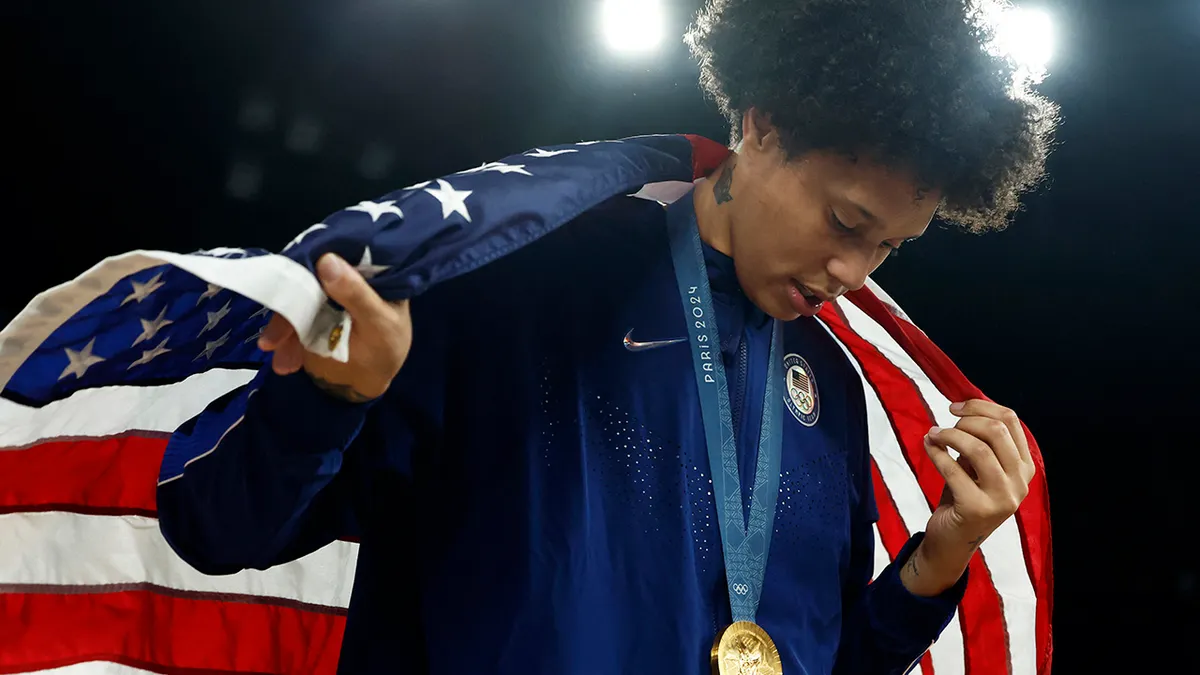
Griner’s national anthem protest belongs to a long lineage of athlete activism. Muhammad Ali, Tommie Smith, John Carlos, Colin Kaepernick—all used their platforms to highlight social issues. What sets Griner apart is the unique context of her protest: a Black LGBTQ+ woman protesting in the WNBA during a time of heightened social awareness.
Each protest is different, shaped by its moment in time and the individual behind it. But they all share a common goal: to push society forward. Griner’s place in this legacy is secure, and her actions have inspired younger athletes to speak up and stand firm in their convictions.
Table: Athlete Anthem Protests and Their Impact
| Athlete | Sport | Protest Action | Impact |
|---|---|---|---|
| Colin Kaepernick | NFL | Kneeling | Sparked national debate, lost NFL career |
| Megan Rapinoe | Soccer | Kneeling | Highlighted LGBTQ+ and racial justice issues |
| Brittney Griner | Basketball | Staying in locker room | Renewed WNBA’s role in activism, sparked public debate |
| Mahmoud Abdul-Rauf | NBA | Refused to stand | Suspended, reignited anthem protest discourse |
Quotes on Protest and Patriotism
“Dissent is the highest form of patriotism.” — Howard Zinn
“I love my country, but I demand that it lives up to its promises.” — Anonymous
“Athletes are more than performers; they are voices for the voiceless.” — Sports Activism Scholar
Frequently Asked Questions
Why did Brittney Griner protest the national anthem?
Brittney Griner protested the national anthem to stand against racial injustice and inequality in America. She felt the anthem didn’t represent liberty and justice for all.
Did Brittney Griner stop protesting the anthem?
After her detainment in Russia and return to the U.S., Griner announced she would stand for the anthem as a personal gesture of gratitude, though her advocacy for social justice continues.
What was the public reaction to Griner’s anthem protest?
Public opinion was divided. Some saw her as a hero standing up for justice, while others labeled her unpatriotic. The reaction mirrored broader national debates on protest and patriotism.
How did the WNBA respond to Griner’s protest?
The WNBA was largely supportive of Griner’s decision. The league has a strong history of activism and encouraged players to express their views.
What does Griner’s anthem protest mean for future athletes?
Griner’s protest empowers future athletes to use their platforms responsibly. It shows that athletes can advocate for change without losing their careers or identities.
Conclusion: A Legacy Beyond the Court
Brittney Griner’s relationship with the national anthem is a powerful reflection of her values, experiences, and identity. Her stance sparked important conversations and reminded us that patriotism can coexist with protest. It’s not about hating a country, but about pushing it to be better. Griner’s legacy will not only be defined by her basketball achievements but also by her courage to stand—or sit—for what she believes in.


